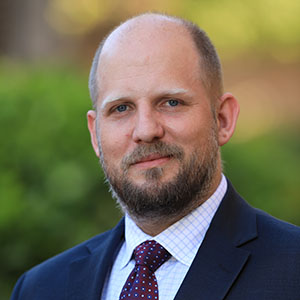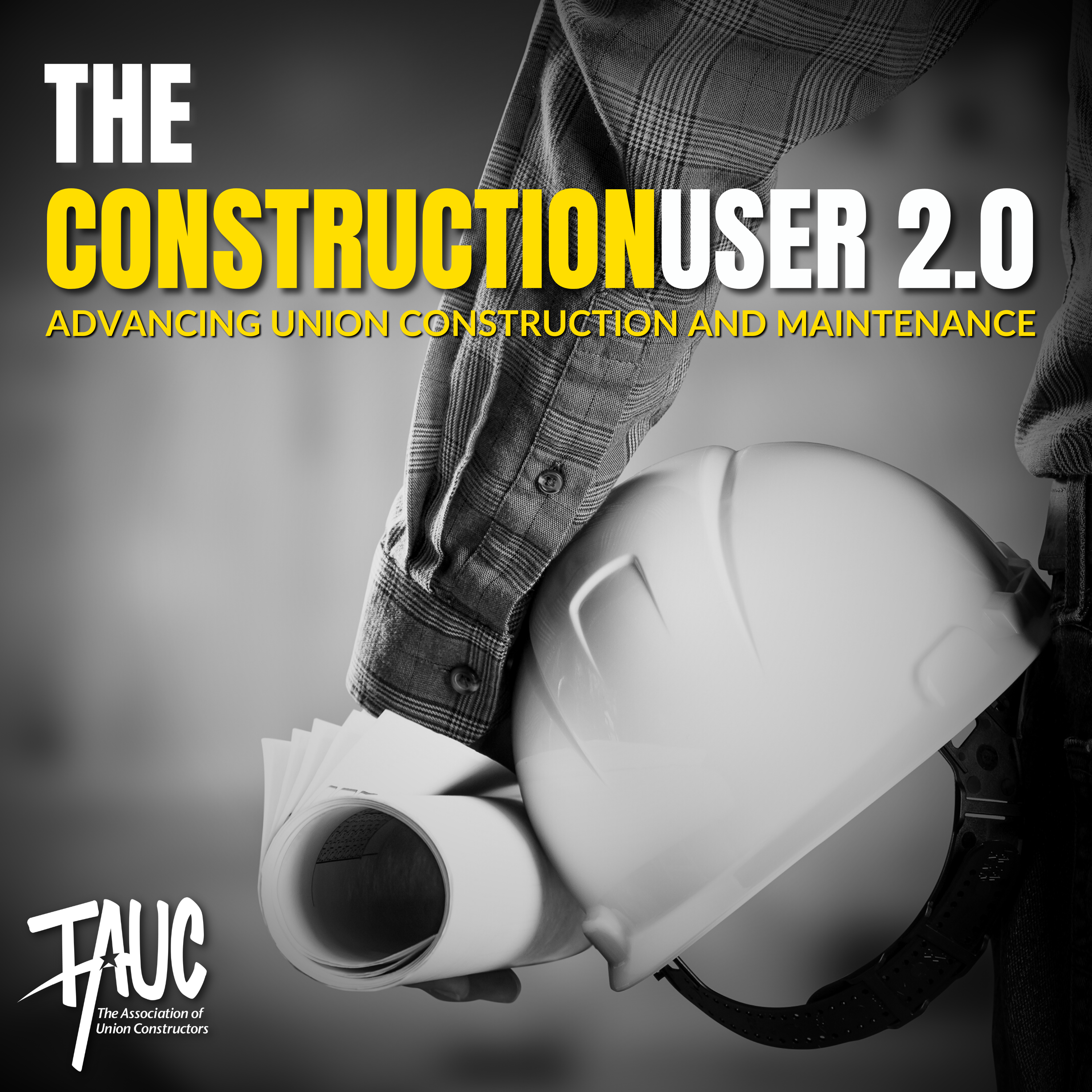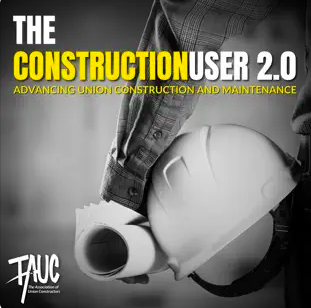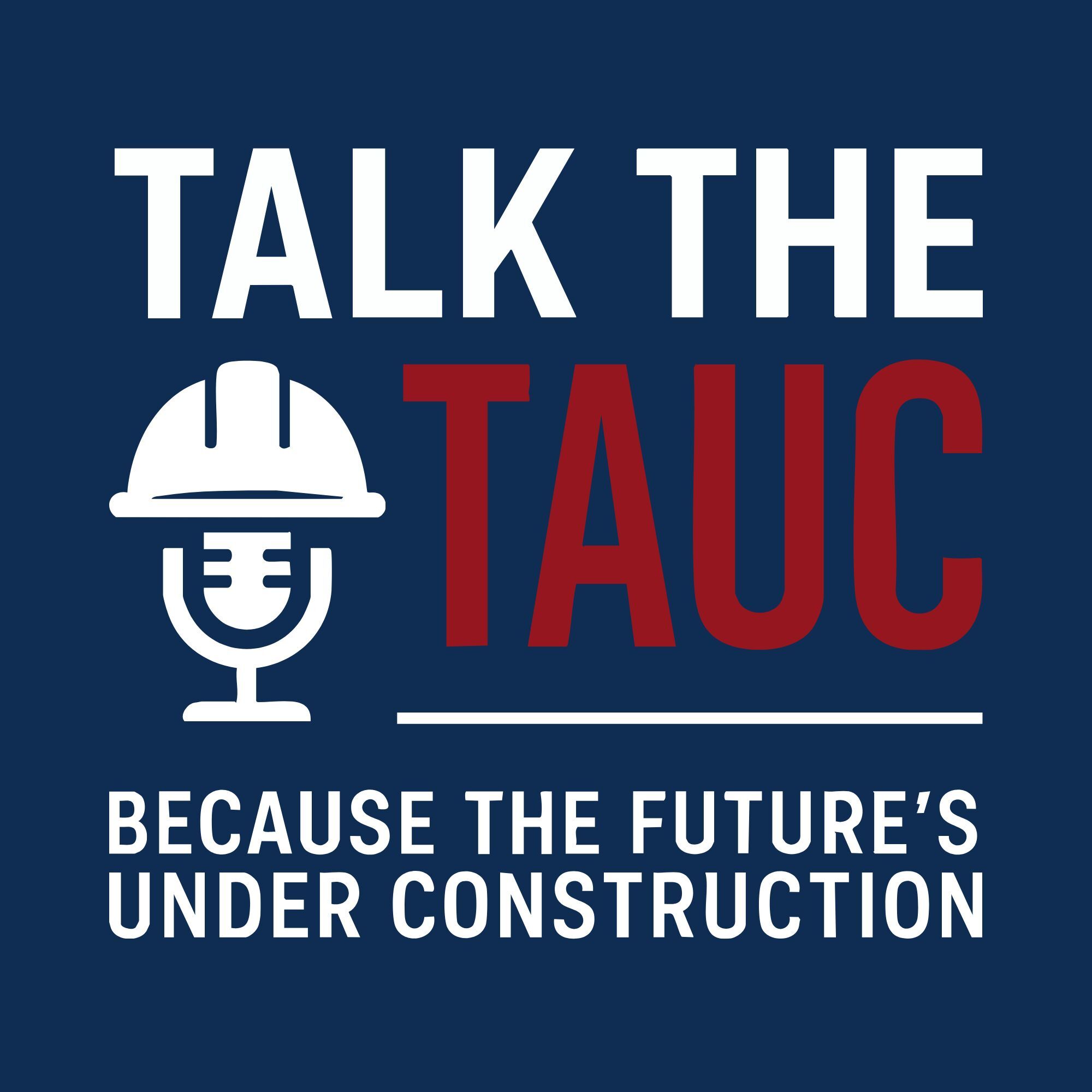Episode Transcript
Welcome to The Construction User 2.0 from the Association of Union Constructors. In this podcast we explore the latest labor trends, industry insights, and important issues in the world of construction. Join us for conversations with industry leaders, subject matter experts, and innovative visionaries as we discuss how we are building the world of tomorrow.
Kirk: Today is episode one of a two-part podcast special. We're going to be discussing the economics of PLAs and prevailing wage laws. We're joined by renowned economists, Dr. Peter Philips and Dr. Kevin Duncan.
Dr. Philips is a labor economist and professor at the University of Utah, and Dr. Kevin Duncan is an economist and professor out of Colorado State. Both have been instrumental in developing research on PLAs and prevailing wage laws. With over 90 publications and countless research projects between them, please welcome our guests, award winning economists Peter Philips and Kevin Duncan.
First, let me say, I'd like to start with a ridiculous question, just something to get us all talking. To each of you, what is the last song that got stuck in your head like you couldn't break free of it, you found humming it throughout the day, people noticing? What was that last song that got cut in your head?
Peter: I am not going to mention it because it'll do it to me again.
Kirk: That's fair. How about you professor Duncan?
Kevin: It's been about the last month. It is I've Never Been to Spain. Three Dog Night originally recorded it, but Elvis performed it. He did it with a big band. Once you hear that, it'll stick in your head for a while.
Kirk: Okay, nice.
Kevin: Peter, I'm sure you could put one in earlier than that.
Kirk: The worst one that I had is that I had The Horse With No Name stuck in my head for, I'm not exaggerating, probably the better part of a year. It just wouldn't go away. It's not a bad song that's stuck in your head for the record.
Okay, let's get to it. You're both professors of economics. Tell me a little bit about your backgrounds in your fields of research just so that everyone listening can get a feeling for what we're talking about and where your bases and backgrounds are.
Kevin: I'm an economics professor at Colorado State University. I was a graduate student at the University of Utah. Forty years ago, I was a student of Peter Philips. About 20 years ago, I started studying the economics of prevailing wage laws. That's really been my passion. Since then, I find it a very interesting field to examine. It certainly has a policy orientation. My research matters, people read it, which is unique, and academia.
Peter: Kevin is being inordinately modest. He is also the first distinguished university professor at Colorado State University Pueblo. I'm not sure whether he takes pride in that. As my former student, I take deep pride in his accomplishments.
Kevin: Thank you for the kind words.
Kirk: That is truly incredible. How about you, Professor Philips? Obviously, economics, but what are your key areas of research?
Peter: Back in the 1980s, I had a student who was the business manager for the operating engineers here in Salt Lake. Six or seven years before that, the Utah legislature had repealed its state prevailing wage law that was on the books since 1931. This student in my labor law and collective bargaining class asked me whether the repeal of this state’s prevailing wage law accounted for the difficulty construction workers were having finding work, and that his union was having staying organized. Frankly, I said, I don't know.
He suggested and I agreed that we put together a study group, which was a business manager from the Teamsters, an administrative assistant for the United Association of Plumbers and Pipefitters, this guy from the operating engineers, and myself. We started studying Utah's construction economy in relation to the repeal of state prevailing wage law.
I thought that it would be maybe a six-month project, and it ended up being what I've been doing ever since, looking at the construction industry in its various aspects. I now look at issues of labor shortages, issues of workplace safety, project labor agreements, prevailing wage laws, bidding on construction projects, the whole gamut of construction issues as they relate to the construction labor mark.
Kirk: That's actually a perfect cue up. My first question is, do you see prevailing wage laws affecting labor, and how is it going to affect employees in the construction industry? I know it's a super broad question, but let's start there.
Peter: When you say affect labor, you can think about construction workers on the project. You can think about construction workers as they navigate their way in their family lives. It's both a workplace issue and a pocketbook issue. The work that Kevin has done, the work that I have done, and the work that others have done, is pretty clearly shown that in states with state prevailing wage laws, wages across the board in construction tend to be higher.
There's a chicken-and-egg problem with that result because it's also true that states with higher wages tend to be more organized. As a consequence, they're more likely to have state prevailing wage laws. There are some issues around which is cause, which is effect, or whether it's one hand washing the other. But there's a strong correlation between the presence of prevailing wage laws and higher wages in the absence of prevailing wage laws with lower wages. That's one major takeaway.
Another takeaway that's based on the work that I've done in the past and the work that along with others including Kevin were doing now is there's a relationship between the presence of prevailing wage laws and fewer injuries in construction that was measured in previous work, looking at injuries from the perspective of what's the percent of construction workers in a state that are partially or fully disabled. The presumption is that much of that disability came from workplace injuries.
Currently, we're doing work that directly measures workplace injuries and the presence or absence of prevailing wage laws. The connection there is that prevailing wage laws indirectly promote apprenticeship training. They indirectly promote apprenticeship training because of two things.
In some states, the prevailing wage proclamation includes apprenticeship contribution. That's the case with California. In other states, that's not so, but nonetheless, it promotes organized construction or a union construction.
With the exception of electricians, most apprenticeship training is done through unions. In the case of the electrical industry, about half of the apprentices are in non-union apprenticeship programs. But in the rest of the industry, that's not the case. Yes, prevailing wage laws affect the wellbeing of construction workers and their family, both through remuneration and through workplace safety.
Kirk: To make sure I understood that correctly, you're saying where there is prevailing wage, there are high proponents of apprenticeships. Where there are higher apprenticeships, there are better workers, and therefore less injuries. So there's a noted correlation between just prevailing wage and safer workplaces?
Peter: Yes. Here, the line of causation is not so ambiguous as in the case of remuneration. The line of causation here is that if you know what you're doing on the worksite, you're less likely to get hurt. There are two avenues for knowing what you're doing on the worksite. The first is experience, and the second is training.
But in addition to that, we also see that in areas where, essentially, construction practices are dominated by low wage strategies to get the job done profitably, you can end up with workers who do not have experience in the construction industry and get hurt because they don't know what they're doing.
When I was a teenager, my father who worked for the Pomona Water Department in California, took one look at me and decided I was really not going to go anywhere in life unless I learned how to earn a living. He got a job for me working for a pipeline company. My job in that pipeline company was called a spotter. They would be laying pipes. The foreman would have a map suggesting where there might be other underground pipes in the way of the pipe that they were laying.
He would say, here, I want you to dig a six foot by six foot by four foot deep ditch and see if you can find a pipe down there that we might end up breaking. Being a teenager and being energetic but dumb, I would just start throwing dirt left, right, and center. Little did I know that when I was digging that hole, I could very well have been digging my grave. I did not know. The foreman did not tell me that if you're in a ditch that's four feet deep, and you bend over, and there is a cave in, you're probably going to be buried there for a time that's longer than they'll have an opportunity to pull you out.
In the summertime now, I'm a backcountry ranger in the Grand Teton National Park. That's right by Jackson Hole. Somebody was walking along the pedestrian path in Jackson Hole two years ago and noticed there was a backhoe that was running, and no one was attending to it. When that pedestrian came back the other way, the backhoe was still running with nobody attending to it. It turned out that the operator of that backhoe had gone into the ditch that he was digging. It had caved in on him, and he was buried and dead at the bottom of that ditch.
OSHA has rules that say you can't dig a ditch without shoring it or sloping it so you don't get those cave-ins. But in the absence of experienced workers who know that, and the absence of unions that enforce that, you get more injuries.
Prevailing wage laws make workplaces safer because it helps workers stay in the industry long enough to get that experience, and it helps unions organize more workplaces so that there are certain protections to make sure regulations are followed.
Kirk: That is incredible. I like that insight, the way you phrase that, that's really cool. Professor Duncan, weighing about prevailing wage and just how it's affecting the industry, how it's affecting our work life.
Kevin: Getting back to pocketbook issues, research I've done different states and groups of states indicates that with prevailing wage laws, construction workers are less dependent on public forms of assistance, less dependent, they participate less in SNAP (Supplemental Nutrition Assistance Program), and they're more likely to receive health and retirement benefits. That helps construction workers if they're earning prevailing wages, or they're in a state that offers prevailing wages.
Prevailing wage laws don't just help construction workers. They provide a benefit to a community where the work is being done. There's emerging research more and more of it, showing that by protecting local wage rates, prevailing wage laws protect work for local contractors. Most of the jobs, incomes, and spending associated with that job, stay in the area so that spending stimulates local service industry, local retail. Businesses that aren't even related to construction benefit from prevailing wage laws by keeping more of that money in the local economy.
Kirk: It sounds like the cost of survival is the cost of survival. If you don't make it from your job, you're going to have to find it from the state or some other resource. Prevailing wages are going to help support not just the industry, but like you said, that local state and community economy.
Kevin: That's right.
Peter: One of the things about using the phrase prevailing wages and prevailing wage regulation is it doesn't emphasize that prevailing wage regulations also mandate a payment of benefits in most states. Those voluntary benefits include health insurance. Construction workers, on average, over to the booms and bust of the construction business cycle, account for about 5% of all workers in the local area.
Jeff Waddoups, who's the chair of economics department down at University of Nevada, Las Vegas, has shown that the county hospital in Cook County where Las Vegas is located, has a disproportionate share of patients that can't pay their bills and are uninsured, who come from the construction industry, where you would expect maybe 5% of all patients who are uninsured would be from the construction industry because that's the size of the construction industry. He was finding 10%–15% of those who couldn't pay their hospital bills because they were uninsured, came from construction.
Public works in construction is about 1/5 of all construction workers. Those workers in Las Vegas get health insurance if they're working on public projects because of the prevailing wage law. They're not part of the burden on the county hospital from uninsured workers.
There's an element, both where preventing wages help the construction worker because it gets that constructor health insurance, but it also helps the county because it means that the industry itself is going to pay for the health problems of its workers rather than putting that on the tax burden for the entirety of Cook County in Nevada.
Kirk: It's a bigger and deeper issue than at least I had fully understood. Professor Duncan, I know that you have worked a lot. Give me the third grade answer. I know it's like trying to explain the tax code, but explain prevailing wage from a top-level perspective.
Kevin: You mean the basics of it? Test with waste?
Kirk: What does it mean to pay the prevailing wage law? What would be just the top-line description of that?
Kevin: It's a wage and benefit floor for construction workers employed on a public project within the jurisdiction where the law applies. That prevailing wage rate, as the name implies, is designed to be the most common wage in that area. There are different ways of survey methods either performed by the US Department of Labor or agencies within a state that are employing different methods to find out what is the rate that prevails in an area.
That prevailing rate is not just like the minimum wage that's uniform across the state, across all occupations. That prevailing wage rate will be specific to a location, typically to a county, and to particular jobs. The prevailing rate for an electrician will be different than it is for a plumber. It will be different for tasks that are performed within the electrician category, so it's very job-specific.
As I mentioned before, the purpose of this is to protect local wage rates. The main motivation for prevailing wage laws, including Davis-Bacon Act, is to prevent a problem associated with federally-funded construction, large projects in an area, attracting contractors from areas where wages are lower.
What can happen if there's a big project? A lot of contractors want to be involved with it. It can draw contractors from other areas that come in. They have lower wages. That can compel local contractors to also reduce their wage rates. The idea is with this wage floor, everyone competes on a level wage playing field so you don't have to degrade local labor standards to win the bid.
Kirk: That makes a lot of sense. It seems that would probably have a lot of impact in just productivity, as well as diversity and other things of being able to bring in the local. Rather than bringing the same crew all around the country, you're going to have a lot of better diversity. Can you talk to that a little bit?
Kevin: That's a good point. In a sense, the local contractors are going to have an advantage over outside contractors because they have the skills that align with the wage rates to do that work. We would think that the composition of the local labor force would have an advantage over contractors from outside the area. In a sense, it would protect the jobs for those workers and protect the composition of the labor force in that area.
This touches on the idea that prevailing wage laws are racially discriminatory or motivated by racism. That gets a lot of attention in the media. But the highest quality research on this shows that prevailing wage laws are not discriminatory. They don't exclude underrepresented groups.
Kirk: I definitely agree. There's always someone who wants to make every concept controversial when there can be. It seems that prevailing wage would be the best for a community and, as you said, not discriminatory, as the research shows. It shows that it is not.
Thank you for joining us for part one of this amazing conversation. Join us next week as we finish our discussion, as we jump from prevailing wage law research into the nuts and bolts of PLAs. In the meantime, check out our previous episodes of The Construction User 2.0 on the TAUC website. Thank you, and we'll see you again next week.
You've just listened to The Construction User 2.0 podcast from The Association of Union Constructors. Don't forget to subscribe to get all future episodes of what is going on and what is current in the union construction and maintenance industry.



